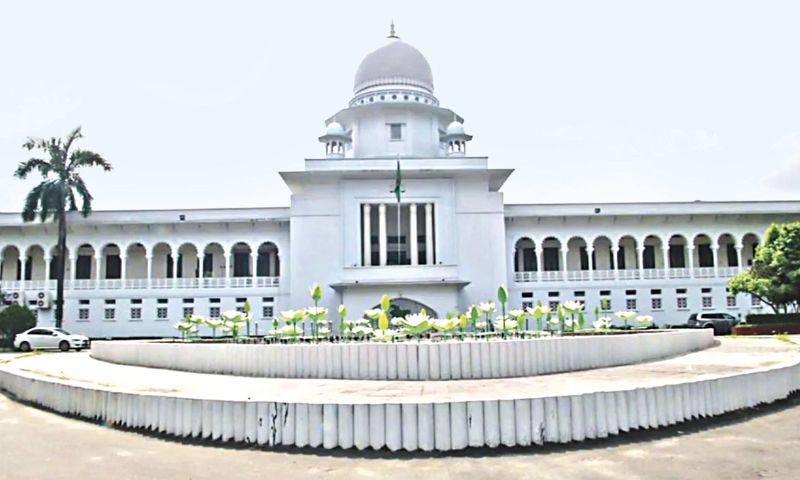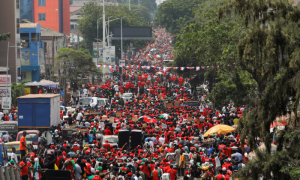DHAKA, Bangladesh: Bangladesh’s Supreme Court has scaled back the contentious quota system Sunday for civil service job applicants, a move that comes after the scheme’s reintroduction last month sparked deadly nationwide unrest.
The decision marks a significant shift in the country’s approach to civil service hiring, following intense pressure from student protests and widespread civil strife.
Attorney-General A.M. Amin Uddin announced that the Supreme Court had declared the earlier High Court verdict reintroducing the quotas as illegal. Moving forward, five percent of civil service jobs will be reserved for children of independence war veterans and an additional two percent for other categories. This decision significantly reduces the scope of the quotas, which had been a major point of contention among job seekers and students.
The quota system, initially designed to provide opportunities to disadvantaged groups, had been a source of controversy for many years. Critics argued that it undermined merit-based hiring and led to dissatisfaction among qualified candidates. The reintroduction of the quotas last month reignited these tensions, leading to violent protests across the country. The protests, primarily led by students, escalated quickly, resulting in deadly clashes and the imposition of curfews in several areas to restore order.
In response to the escalating situation, the Supreme Court intervened to scale back the quotas and issued a plea for students to return to their classes. Shah Monjurul Hoque, a lawyer representing two students who filed a case seeking to overturn the quota scheme, conveyed the court’s message emphasizing the need for stability and a return to normalcy in academic institutions.
The court’s decision to partially scale back the quotas is seen as a compromise. By retaining a smaller percentage of reserved positions, the court aims to balance the need for inclusivity with the demand for merit-based hiring. However, this decision is unlikely to satisfy all parties involved. Supporters of the quota system argue that it is essential for ensuring representation and addressing historical injustices, while opponents continue to call for its complete abolition.
The unrest began with the government’s decision to reintroduce the quota system for civil service jobs, which led to widespread dissatisfaction among students and job seekers. Protests erupted across the country, leading to violent confrontations with security forces. The clashes resulted in numerous injuries and over a hundred fatalities, prompting the government to impose curfews in an attempt to quell the unrest.
As the protests continued, the government faced mounting pressure to address the students’ demands. The Supreme Court’s intervention and subsequent ruling to scale back the quotas were seen as an attempt to restore order and address the concerns of the protesters. The court’s decision is a significant step in addressing the immediate unrest, but the underlying issues of representation, equity, and meritocracy in civil service hiring remain unresolved.
Moving forward, it will be crucial for the government, judiciary, and civil society to engage in constructive dialogue to find a sustainable solution that addresses the concerns of all stakeholders. The Supreme Court’s ruling provides a temporary reprieve, but the broader debate over fair and inclusive hiring practices is far from over.
Supreme Court’s decision to scale back the quota system and its call for students to return to class represent significant developments in Bangladesh’s ongoing civil service hiring controversy.
























